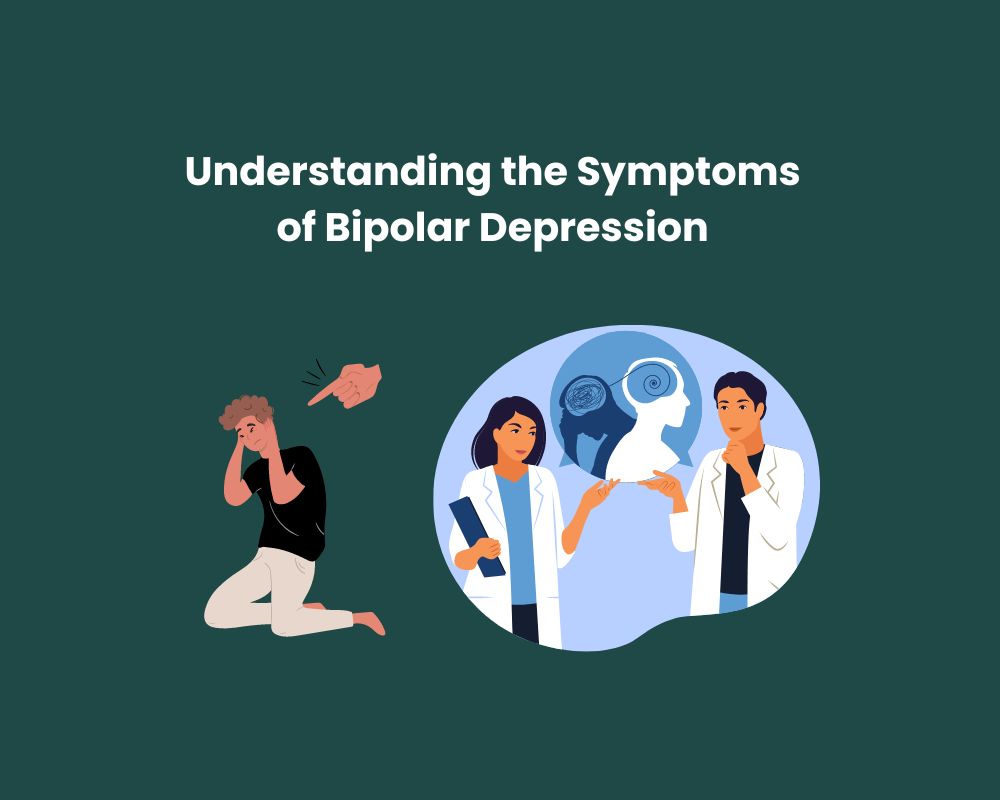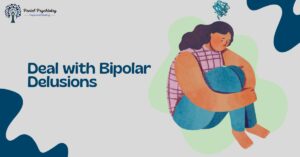As an experienced psychiatrist, I understand that bipolar disorder is a complex and often misunderstood mental health condition. Bipolar depression, a phase of bipolar disorder, is characterized by significant depressive episodes that can severely impact a person’s life. Recognizing the symptoms is crucial for effective diagnosis and treatment.
Here are some key symptoms of bipolar depression:
1. Persistent Sadness or Hopelessness
One of the hallmark symptoms is a pervasive feeling of sadness or hopelessness. Patients often report an inability to find joy in activities they once enjoyed. This deep sadness can linger for weeks or even months, affecting daily functioning and overall well-being. It’s not just a temporary low mood but a profound and persistent emotional state that can lead to social withdrawal and isolation.
2. Fatigue and Loss of Energy
Individuals with bipolar depression frequently experience extreme fatigue and a noticeable decrease in energy levels. This can make even simple tasks feel overwhelming and exhausting. Daily activities, such as personal hygiene, work responsibilities, or social interactions, may seem insurmountable. The persistent tiredness is not relieved by rest or sleep and can contribute to a cycle of inactivity and increased depressive symptoms.
3. Changes in Sleep Patterns
Sleep disturbances are common in bipolar depression. Some individuals may suffer from insomnia, finding it difficult to fall or stay asleep, leading to chronic sleep deprivation and exacerbating other symptoms. Conversely, others may experience hypersomnia, sleeping excessively without feeling rested. These sleep issues can disrupt the body’s natural rhythms and further impact mood and cognitive function.
4. Changes in Appetite and Weight
Significant changes in appetite can occur, leading to noticeable weight loss or gain. Some individuals may lose interest in food altogether, experiencing a significant decrease in appetite. Others may turn to overeating as a source of comfort, often craving carbohydrates or sugary foods. These changes can affect physical health, leading to additional complications such as malnutrition or obesity.
5. Difficulty Concentrating
Cognitive impairment is another symptom of bipolar depression, where patients struggle with concentration, memory, and decision-making. This mental fog can affect work, school, and daily activities, making it challenging to complete tasks or engage in conversations. The inability to focus and think clearly can increase frustration and feelings of incompetence, further deepening the depressive state.
6. Feelings of Worthlessness or Guilt
Individuals often feel an overwhelming sense of worthlessness or excessive guilt over trivial matters. These feelings can exacerbate the depressive state and contribute to a negative self-image. Patients may dwell on past mistakes or perceived failures, magnifying their importance and feeling undeserving of happiness or success. This relentless self-criticism can prevent recovery and discourage seeking help.
7. Suicidal Thoughts or Behaviors
In severe cases, individuals may have recurrent thoughts of death or suicide. It is crucial to take any mention of suicidal ideation seriously and seek immediate professional help. Suicidal thoughts can range from passive wishes to active planning or attempts. Early intervention is essential to prevent tragic outcomes and to provide the necessary support and treatment.
8. Psychomotor Agitation or Retardation
Patients may experience psychomotor changes, such as restlessness or, conversely, slowed movements and speech. Psychomotor agitation may manifest as an inability to sit still, pacing, or fidgeting, while psychomotor retardation can involve sluggishness, decreased physical activity, and slow speech. These physical symptoms reflect the inner turmoil and lethargy associated with bipolar depression.
Conclusion
Bipolar depression is a serious condition that requires comprehensive treatment, including medication, psychotherapy, and lifestyle changes. Early recognition of symptoms can lead to more effective management and a better quality of life for those affected. If you or someone you know is experiencing these symptoms, seeking professional help is essential. Bipolar depression is a lifelong condition, but with the right support and treatment, individuals can lead fulfilling and productive lives. Regular monitoring, a strong support network, and ongoing therapy are key components of managing this complex disorder.




